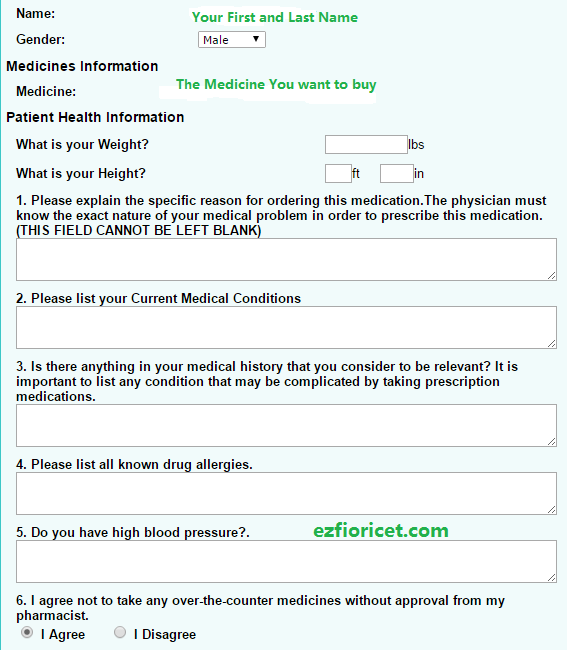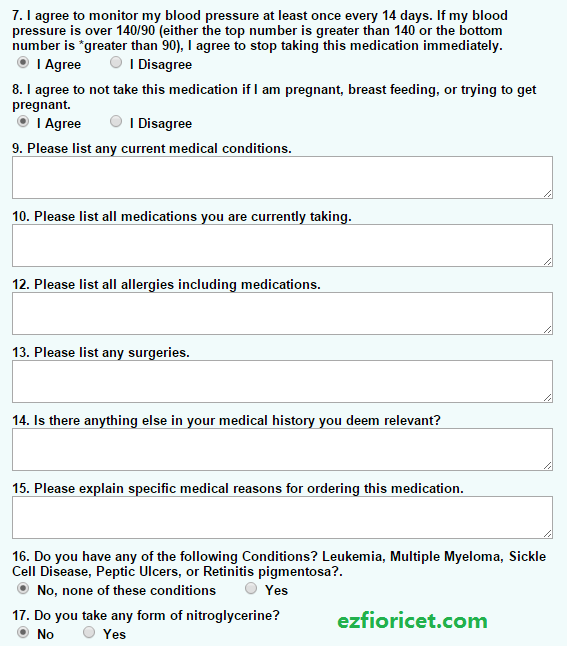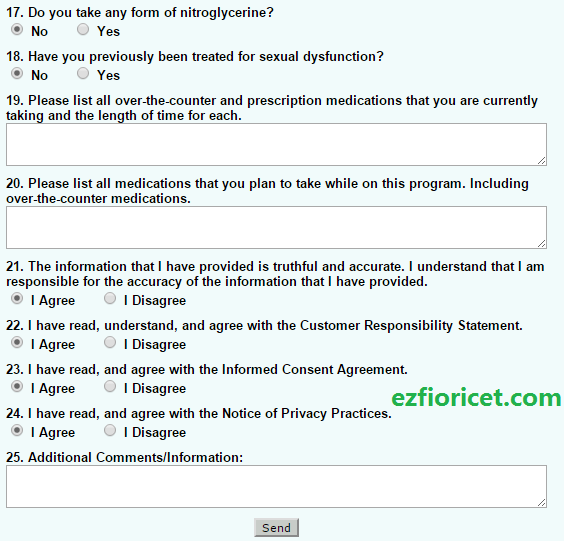When ordering gabapentin online, it is crucial to provide your doctor with accurate and thorough information to ensure the medication is safe and appropriate for you.

Whether you’re discussing gabapentin with a doctor during a telemedicine consultation or in person, here are the key things to share:
1. Your Medical History
- Kidney disease: Gabapentin is primarily eliminated through the kidneys. If you have a history of kidney disease or reduced kidney function, your dosage may need to be adjusted. Inform the doctor if you’ve experienced any kidney-related issues.
- Lung or respiratory issues: Gabapentin can cause respiratory depression (slow or shallow breathing), especially if you have underlying conditions like COPD, asthma, or other breathing problems. Make sure your doctor knows about any respiratory conditions.
- Mental health history: Let your doctor know if you have a history of depression, anxiety, bipolar disorder, or have experienced suicidal thoughts. Gabapentin can sometimes worsen mood disorders or increase suicidal thoughts, especially at the beginning of treatment.
- Seizures: If you’re being prescribed gabapentin for conditions other than seizures, tell the doctor if you have a history of seizure disorders or epilepsy. Gabapentin is commonly used to manage seizures, so this history is important for proper dosing and monitoring.
- Substance abuse history: Be upfront if you have a history of drug or alcohol abuse. Gabapentin has some potential for misuse and dependency, particularly in individuals with a history of substance abuse.
2. Current Medications
- Over-the-counter (OTC) medications: Let your doctor know if you are taking any OTC medications, particularly those that might cause drowsiness or affect the nervous system (e.g., antihistamines, cold medications).
- Prescription medications: Provide a list of all prescription medications you’re currently taking, especially:
- Opioids: Combining gabapentin with opioids can increase the risk of sedation and respiratory depression.
- Antidepressants (e.g., SSRIs, SNRIs, MAO inhibitors): Gabapentin can interact with medications used for depression or anxiety, affecting mood or increasing sedation.
- Anticonvulsants: If you are on other medications for seizure control, your doctor needs to know this to adjust dosages or avoid interactions.
- Muscle relaxants or benzodiazepines: These can cause increased drowsiness when combined with gabapentin.
- Sleeping pills or sedatives: The combination with gabapentin may cause excessive drowsiness or dizziness.
3. Your Reasons for Using Gabapentin
- Gabapentin can be prescribed for a variety of conditions. Clearly state why you’re considering it or have been prescribed it:
- Nerve pain (neuropathy): If you have diabetic neuropathy, post-herpetic neuralgia (pain after shingles), or sciatica, tell your doctor about your condition.
- Seizures: If you’re being treated for epilepsy or another seizure disorder, provide details about your history of seizures, such as frequency, triggers, and any prior treatments.
- Restless leg syndrome: If gabapentin has been recommended for this condition, explain your symptoms, including how often and how severely they affect you.
- Anxiety or sleep problems: If using gabapentin off-label for anxiety or insomnia, be specific about your symptoms and any prior treatments you’ve tried.
4. Previous Treatments and Effectiveness
- Inform your doctor about any treatments you’ve tried previously for your condition and whether they were effective or caused side effects. This helps your doctor determine if gabapentin is the right option for you. For example:
- If you’ve used other anticonvulsants, pain medications, or antidepressants, describe their effectiveness and any adverse reactions you experienced.
- Share whether non-drug treatments (e.g., physical therapy, relaxation techniques) have helped in managing your symptoms.
5. Potential for Drug Interactions
- If you’re taking any antacids, let your doctor know, as antacids containing aluminum or magnesium can interfere with gabapentin absorption.
- Alcohol use: Gabapentin can increase the sedative effects of alcohol, leading to increased drowsiness or risk of respiratory depression. Be honest with your doctor about how much and how often you drink alcohol.
- If you’re taking herbal supplements or vitamins, mention these as well, since some natural products may interact with prescription medications.
6. Dosage Concerns and Usage Instructions
- Discuss your concerns about the dosage. Gabapentin often requires a titration period, meaning the dosage needs to be gradually increased over time to minimize side effects and improve effectiveness. Let your doctor know if you’ve had trouble with titration in the past or have concerns about adjusting doses.
7. Pregnancy or Breastfeeding
- Inform your doctor if you are pregnant, planning to become pregnant, or are breastfeeding. Gabapentin is generally not recommended during pregnancy or breastfeeding unless absolutely necessary, as it may have potential risks to the fetus or nursing infant.
8. Allergies
- If you have any known allergies to gabapentin or similar drugs (like pregabalin), or to inactive ingredients in the formulation, disclose this to your doctor to avoid allergic reactions.
9. Side Effects You’re Worried About
- If you’re concerned about specific side effects, such as drowsiness, dizziness, weight gain, or coordination problems, raise these concerns with your doctor so they can explain how likely these side effects are and what to do if they occur.
10. Concern About Ordering Online
- Ask your doctor about the safety of ordering gabapentin online and whether the online pharmacy you’re considering is legitimate. It’s critical to use a reputable online pharmacy that requires a valid prescription and follows legal regulations to avoid receiving counterfeit or unsafe medications.
Key Points to Discuss with Your Doctor When Ordering Gabapentin Online:
- Your medical history (especially kidney issues, respiratory problems, mental health conditions, or substance abuse).
- Current medications, including OTC drugs, prescriptions, and supplements.
- Why you’re taking gabapentin and any previous treatments.
- Alcohol use and potential for drug interactions.
- Pregnancy or breastfeeding status.
- Concerns about side effects or potential dependence.
By providing this information, your doctor can ensure that gabapentin is prescribed safely, with the appropriate dosage, and will be effective for your specific condition.



